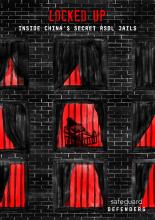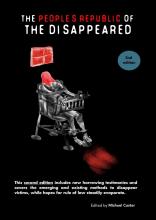A very unusual case of RSDL
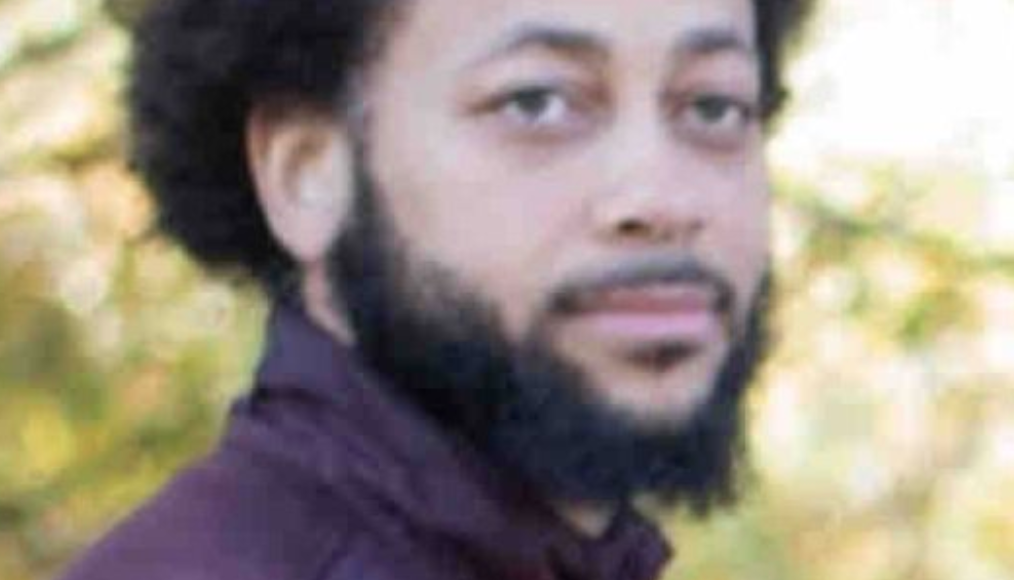
China has a secret jail system that’s not just for political prisoners.
It’s used on thousands of “suspects” every year. And it’s been used on foreigners too. The two most famous are Canadians Michael Spavor and Michael Kovrig, who are now awaiting verdicts on their show trials.
Residential Surveillance at a Designated Location (RSDL) is designed to intimidate. The detainee is hidden away at a secret location with no communication with the outside world. They are locked into a single room, often without sunlight, for up to six months. The only people they will see are their interrogators and their guards. Lawyer access is very unlikely. Under such conditions, torture can be practiced with impunity and may range from beatings, sleep and food deprivation, forced medication and threats to life or the life of their loved ones.
To mark the upcoming publication of our illustrated report on RSDL, Locked Up: Inside China’s Secret RSDL Jails, we take a look at a very unusual case of RSDL.
Last year, while the world was reeling with the Covid-19 pandemic, Chinese police inexplicably placed American basketball player and personal trainer Jeff Harper in RSDL.
This is his story.
What happened to Jeff?
Jeff was in China January 2020 hoping to secure a contract as a professional basketball player after recovering from an injury. Less than a week after he arrived in Shenzhen, a city next to the Hong Kong border, he was walking home at night and had stopped to buy a bottle of water when he tried to stop what he thought was a man assaulting a woman on the street and pushed the man over. Jeff said the man was not bleeding and he simply walked away; he had looked fine. Unfortunately, hours later, the man checked into a hospital and fell into a coma. That’s when the police came knocking.
Jeff was initially held at a detention centre for 14 days, under investigation for causing serious injury by negligence. This was later changed to death by negligence when the man did not recover and died.
On 20 January 2020, Jeff was moved to a tiny bare room with nothing more than a mattress on the floor in a scruffy apartment building in Shenzhen and stayed there in solitary confinement for the next eight months until 20 August.
Jeff had been placed in RSDL.
His RSDL cell was a tiny room in an apartment complex in Shenzhen’s Nanshan District. “It looked like everyone there was from the police,” he said. “I had bars on my windows. I couldn’t leave at all.”
His bed was a mattress on the floor, with maggots underneath. “It was an old apartment. It was pretty dirty. There were guards on duty all the time.”
The guards lived in the apartment’s living room, where bunk beds had been installed. There would be at least two guards on duty at all times. “We shared a bathroom together and that wasn’t pleasant.” He was left alone at night, when he was allowed to close his door. The guards would stay in the living room, and whenever he got up at night, they would be talking.
His room was bare except for the mattress and a fold-up chair. “That was my workout chair!” He had no TV, no air con, no books, no pen and no paper (although in the last weeks, he was allowed a few books).
“I didn’t go outside for eight months. I was confined to my room, and my mattress took up most of the room... I set up water bottles and made up my own little bowling alley. But that didn’t keep my attention for long, so…”
The food was simple.
“I ate rice every day. Sometimes the rice had bugs in it… I lost 40lbs.
“It was very hot. Extremely hot. I would fight off mosquitoes daily. There was an army of those… For the most part, the guards would not speak to me at all. But the younger guards would.”
“I didn’t go outside for eight months. I was confined to my room,
and my mattress took up most of the room."
To shower he had to use hot water out of a bucket. When he brushed his teeth, the water flowed brown from the taps.
For the first six weeks of his RSDL, he wasn’t allowed to see anyone.
“It was very difficult. I didn’t know what was going on. I didn’t know what the virus was at the time. I thought that everyone had forgotten about me. I don’t speak Chinese. The guards didn’t really speak English. They gave me a translator that didn’t work properly so it was difficult.”
After that, he was allowed to meet with consular staff and his lawyers. And he was allowed one phone call every week or two with his fiancé Victoria Villareal, back in the US.
“The first phone call I had with Victoria we only got to speak for five minutes because she told me about the virus [Covid] so they took the phone from me.”
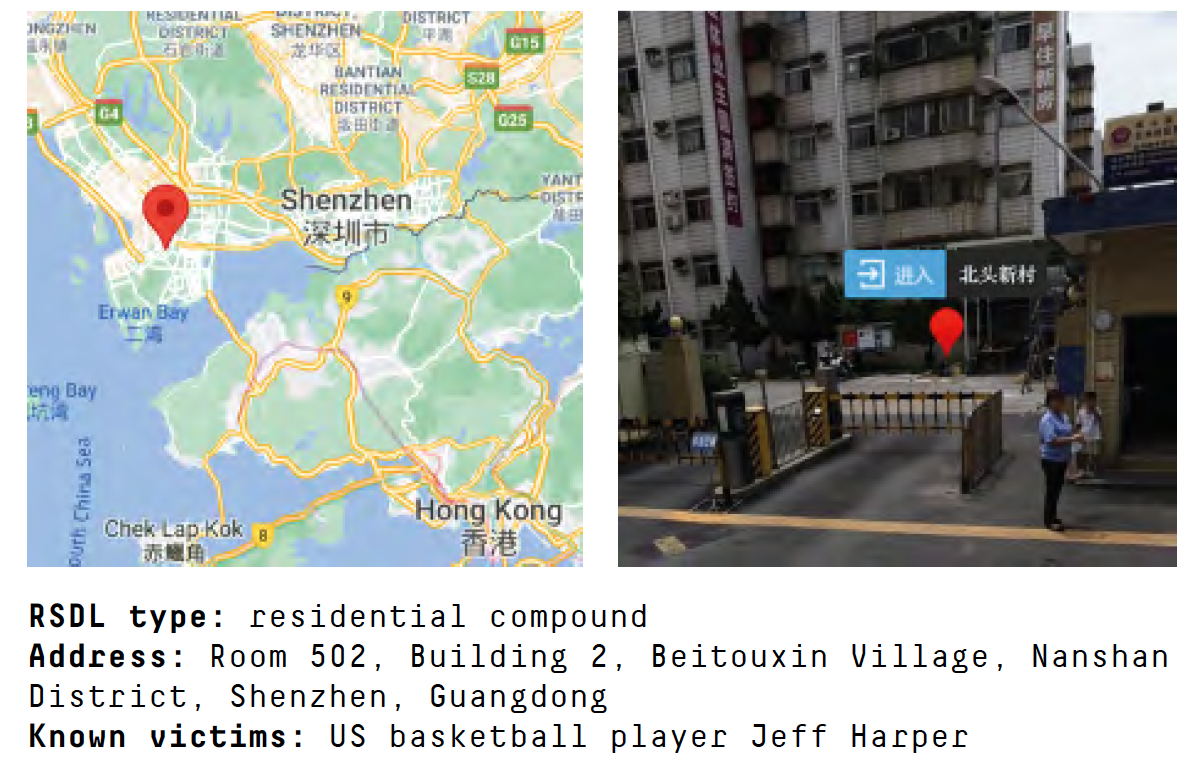
His lawyer had left Shenzhen because of the Covid situation, but when she returned in March/April she made several attempts to meet with Jeff, but was denied by police. She persisted, and eventually was allowed access.
“It took a lot for her to get to see him, to get it approved,” said Victoria. “She would go back there three or four times, and they would deny the visit. Eventually she did get in and then he started getting somewhat regular visits.” From May onwards, he got visits from his lawyer every two weeks.
“I had one form of entertainment. It was a big rat crawling from wire to wire between the buildings.
I watched this rat everyday, it was my source of entertainment.”
He was also visited by the prosecutor three times. They updated him about his case and helped him get an air con (Shenzhen is very hot in the summer).
“When I finally got air con installed that was a big upgrade, that was like going to a luxury hotel at that point. I was still in solitary confinement but at least I had my room and it was cool.
“I would just sit around all day and do push-ups and work out. Stare out the window and look at the airplanes go by and hoping that this day would pass.”
From his apartment window, he could see other apartment windows and an abandoned basketball court. “The basketball hoops had been torn down and there was glass everywhere.”
“I had one form of entertainment. It was a big rat crawling from wire to wire between the buildings. I watched this rat everyday, it was my source of entertainment,” he laughed.
As China got a handle on the pandemic, Shenzhen started to open up. “Eventually I saw little kids, I could hear a basketball dribbling, I could see a couple of shops starting to open more and more as the months started to pass. There was a school not too far from me I could hear the little kids when school was over.”
With the untiring help of Victoria, who arranged a lawyer and diplomatic assistance, the Chinese police decided to drop the charges and ten days after his RSDL ended on 20 August, Jeff was on a flight back home.
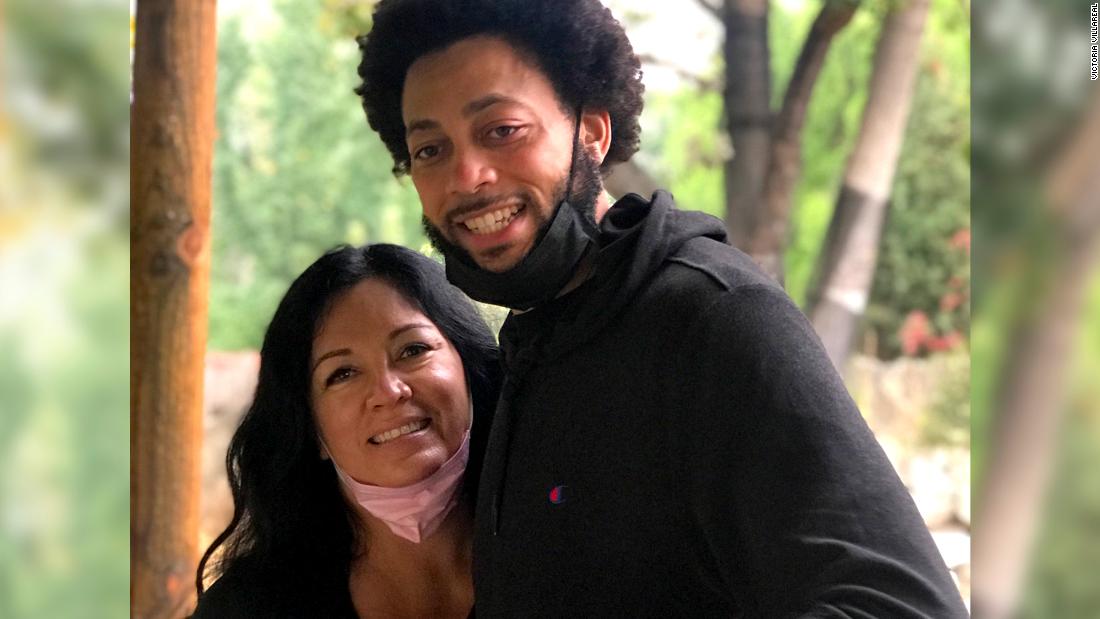
How was Jeff’s RSDL unusual?
While it is not unheard of for foreigners to be placed in RSDL, it is unusual. RSDL is often reserved for political cases (hostage diplomacy, human rights targets and corruption).Jeff’s case doesn't appear to fit any of these descriptions. It would have made much more sense for him to have been kept in the detention centre, under house arrest at his hotel, or simply been issued with an exit ban while the police investigated rather than kept in solitary confinement under RSDL.He was only questioned by police for the first two weeks at the detention centre. He was never interrogated during RSDL, which appears at odds with the purpose of RSDL as a compulsory measure during the “investigation” phase of a potential criminal case.
Jeff’s RSDL was worse
He was held for eight months. That’s two months longer than the legal maximum.
Living facilities were poor. His room was just a dirty mattress on the floor, his shower just a bucket. Most RSDL cells tend to have slightly better facilities, such as a bed, shower and some simple furniture.
His conditions were not hygienic. The water from the taps was brown, he had bugs in his rice, and there were maggots under the mattress. RSDL prisoners usually report better basic hygiene.
Jeff’s RSDL was better
He was given (somewhat) regular access to his lawyer (after the first two months). It is almost unheard of for RSDL prisoners to see a lawyer during this stage.
He had prosecutor visits. Jeff remembers three. It is almost unheard of for RSDL prisoners to get prosecutor visits, although this is a minimum safeguard that should be in place.
He could talk (somewhat) regularly to a family member (Victoria). It is almost unheard of for RSDL prisoners to have any access to family members. Often, they don’t even know that their loved one is being held in RSDL. That is why it has been described as a state-sanctioned kidnapping or enforced disappearance.
He could see out of his window. RSDL cells usually have blacked out windows (heavy drapes or painted over glass) so that the prisoner will not see daylight for the entire time.
He had some privacy. Although he was guarded 24/7, the guards would allow him to the bathroom and to sleep at night without being watched. He was allowed to close the door; the guards would stay in the living room. RSDL prisoners must endure 24-7 surveillance, including sleeping and going to the toilet.
He was not tortured. In fact, Jeff said he was treated well. RSDL prisoners are routinely tortured physically and mentally, including beatings, sleep and food deprivation, stress position, forced medication, and threats.
He could turn off the light at night. RSDL cells are lit 24-7 by harsh strip lighting.
Locked Up: Inside China's Secret RSDL Jails
Read more about RSDL in our upcoming publication: Locked Up: Inside China’s Secret RSDL Jails, out 22 June, in The People’s Republic of the Disappeared, available on Amazon worldwide here, and in Safeguard Defenders exposé of the true scale and scope of the system, as revealed by analysis of official Chinese court records, Rampant Repression.
